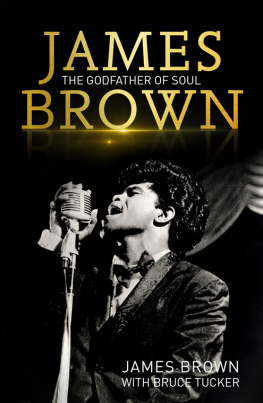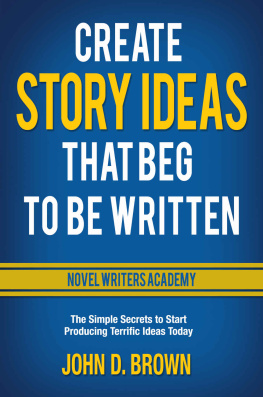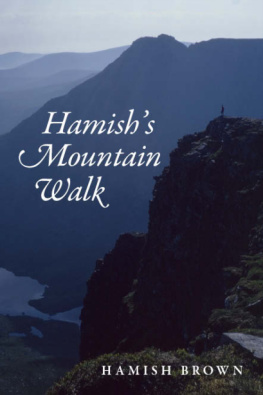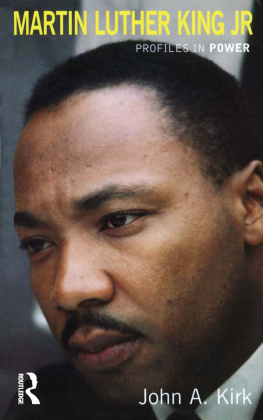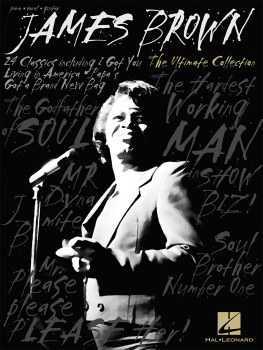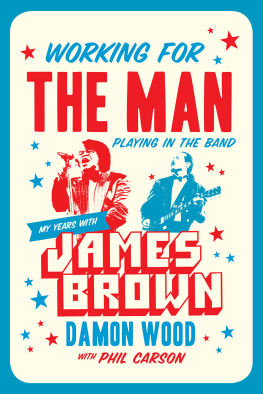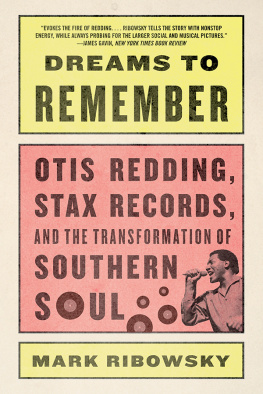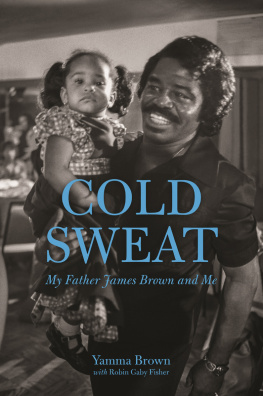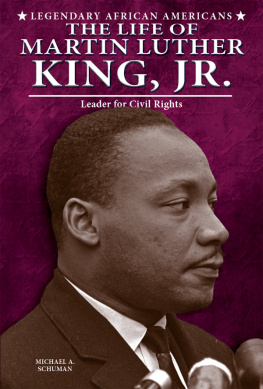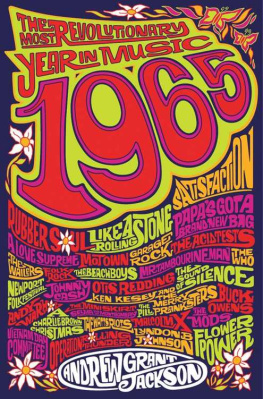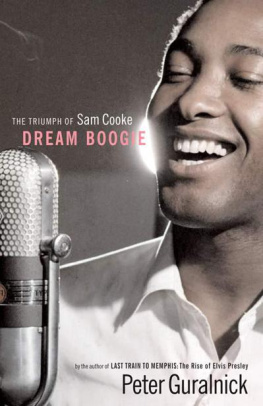


www.headofzeus.com
For the child deprived of being able to grow up
and say Momma and Daddy and have both of them
come put their arms around him.
J. B.
For Vereen Bell, Jr., Roy Blount, Jr.,
and Sam Floyd, Jr.three juniors who are
my seniors, mentors, and friends.
B. T.
Contents
I was marked from the getup. You might say that Ive got a mark on my back that I never knew was there. Thats because they fixed it where I couldnt see it myself. But now that I can look back on my life, I realize that what Ive done was no accident.
I was marked a lot of different ways. With names, for example. I was marked with a lot of different names. And each one has a story behind it.
As a kid growing up in a whorehouse, I was known as Little Junior. After I broke my leg a couple of times playing football, I was nicknamed Crip. In prison I was called Music Box.
The name of my first group, the Famous Flames, caused Little Richard to say, Yall are the onliest people who ever made yourselves famous before you were famous.
As a performer, Ive had names like Mr. Dynamite, The Please Please Please Man, The Hardest Working Man in Show Business, Soul Brother Number One, The Sex Machine, His Bad Self, The Godfather of Soul, and The Minister of the New New Super Heavy Funk.
My full legal name is James Joe Brown, Jr. Ben Bart, my manager for many years and a man who was like a father to me, always called me Jimmy. Today, I prefer to be called Mr. Brown.
But of all the names Ive been marked with, James Brown is probably the most mysterious. In school the kids and the teachers always called me by it like it was one word: Jamesbrown. Just like that. But originally my name wasnt supposed to be James Brown at all. It should have been something else.
When I look back on my life and follow the different bloodlines, its almost like I was a planted child, like I was sent here for a reason. I guess we all feel that way. But a lot of strange things have happened in my life, and by looking back Ive been finding out who I am.
Its just beginning to come to me.
I want to thank God first. And I want to thank my wife, who gave me a new look and a new outlook. I want to thank Macmillan Publishing Company for going through with the project all the way and realizing how important it is.
I want to thank Bruce Tucker for traveling around with me, seeing me in all different kinds of situations, and really getting to know James Brown so he could bring out the real story. I want to thank Gerri Hirshey for bringing me to the attention of other writers interested in my story.
I want to thank all the members of my band, who gave me the drive and the support that I need to demand an audiencenot command but demand.
I want to thank my mother and father. I hope their sons story will thank them more by doing a lot of good things.
And I want to thank this country for allowing me to tell my story and for making it possible for me to have a story to tell. Im also grateful to all the countries that allow me to come onto their soil and do a show thats Americanized to a point that it could hurt some of their culturebut they always take the good from it to help their culture along.
Id like to thank in advance the libraries and the schools for a place on their bookshelves. And I want to thank in advance any young kids who can use this story as a role model. If this book helps somebody, then it will have accomplished what I want to accomplish.
JAMES BROWN
Not many kids get to grow up and work with their boyhood idol. For giving me that rare opportunity, I have many people to thank. Jim Fitzgerald initiated the project, and Roy Blount drew me into it. My agent, Carol Mann, kept it going and, for the past year and a half, kept me going as well. At Macmillan the support of Hillel Black and the enthusiasm and incisive editing of Dominick Anfuso made the idea a reality.
For me, nothing would be possible without the unflagging support of my wife, Harriet Davidson, who, while I was out there with the Godfather, endured my frequent absences from home before and after the birth of our daughter.
I, too, wish to thank Gerri Hirshey, author of the incomparable Nowhere to Run: The Story of Soul Music. Her generosity with files and notes, her unfailingly sound advice, and her strategically timed encouragement helped immeasurably.
In Georgia, A. H. Dallas smoothed the way throughout. Mrs. James Brown offered hospitality and candor in equal measure. And if they gave Grammys to secretaries for handling with sympathy and tact the unceasing demands made on performers like James Brown, Becky Blanchard Miller would win hands-down.
My sister Mary Howell provided logistical support during a crucial stage of the project. The indefatigable Cliff White, on woefully short notice, produced the exhaustive discography that appears at the end of the book. Vicki Gold Levi gave me a crash course in photo research. John H. Johnson of Johnson Publishing Company generously made available photographs from Ebony.
Thanks also to the many people who provided information and interviews as aids to His Bad Selfs own astonishing powers of recall: Hoss Allen, Thomas I. Atkins, Leon Austin, Sydney L. Avery, Dan Aykroyd, Johnnie May Wheeler Banks, Jack Bart, Steve Bloom, Robert J. Brown, Velma Warren Brown, Dr. William Calloway, William Bootsy Collins, Mal Cook, Richard Dostal, Tim Drummond, Roy Emory, Buddy Fox, Al Garner, Laura Garvin, Willie M. Glenn, Delois (Keith) Haley, Sylvester Keels, Gwen Kessler, Mike Lawlor, Ron Lenhoff, George Livingston, Jr., Lester Maddox, Warren A. Martin, Sparkie Martin, Mrs. Walter J. Matthews, Johnnie Miller, Silas Moore, Hal Neely, Bob Patton, Dora (Davis) Payne, Chuck Seitz, Reverend Al Sharpton, Charles Sherrell, Hamp Swain, Donald E. Walters, Sr., Colonel Jim Wilson, Guy Wilson, Teddy Washington, and Perry Williams.
Just as he made a major contribution to James Brown and the Famous Flames, Bobby Byrd played a crucial role in the realization of this book. With Bobby and his wife, Vicki Anderson, two of the most generous and gracious people I know, I passed many pleasurable hours in my old hometown of Nashville.
It was there, back in 1962, after a rained-out James Brown show at Sulphur Dell, that I jumped from the grandstand and sneaked backstage. A fourteen-year-old already suffocating in surburbia, I wanted to shake the hand of the man whose music coming over WLAC late at night had blown away the teen crooning, cha-cha-cha and Mouseketeer rock found a little farther up the radio dial. Even then I perceived, however dimly, that I was thanking James Brown for far more than some enjoyable records. Twenty-three years later, after an arduous day of working together on this book, I tried to tell him all that. Youre kidding, he said.
No, James, Im not.
BRUCE TUCKER
James Brown
I wasnt supposed to be James. I wasnt supposed to be Brown. And I wasnt supposed to be alive.
You see, I was a stillborn kid. My mother and father lived in a one-room shack in the pine woods outside Barnwell, South Carolina, and when my mothers time came, they sent for my Aunt Estelle and Aunt Minnie to help. Theyd helped at births before, and when I appeared, they did all the usual things, gave me the usual spanking, all that, but I didnt respond. They kept trying, but nothing happened. After a while, they just laid me aside.
Next page
